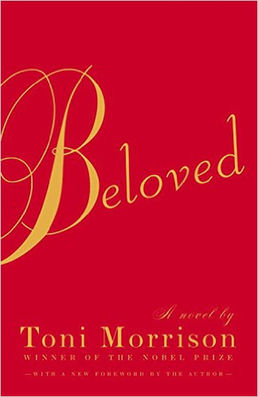 Written by Lauryn Smith Award-winning author Toni Morrison's storytelling is brilliant in her novel “Beloved,” which won the 1988 Pulitzer Prize for Fiction. That statement about Morrison’s prose is probably obvious, especially to literature aficionados. Those who do not know of Morrison’s work (heck, even those who already do) should consider reading her perspective-altering novels. Then reread them. And share them. Morrison is an American writer who has won both Nobel and Pulitzer prizes and received numerous other honors. She is known for her bold themes and lifelike characters, both of which are prominent in “Beloved,” a tale about slavery in post-Civil War America. Morrison’s direct, convincing representations of slavery and post-servitude freedom during this era of American history make the book noteworthy. Morrison illustrates the life of Sethe, a character inspired by Margaret Garner, an enslaved black woman in pre-Civil War America. Sethe escapes slavery with her children and runs to Ohio, a free state. After just a month of freedom, she is sought under the Fugitive Slave Act of 1850. Rather than see them forced back into slavery, Sethe attempts to kill her children, succeeding with one, a daughter called Beloved. Years later, a woman enters Sethe’s life. The woman calls herself Beloved. Therein lies the core discourse of the novel. Morrison demonstrates her one-of-a-kind writing style in “Beloved.” She takes artistic liberty, playing with language, usually successfully. For instance, Morrison uses a ragged approach in “Beloved,” which differs from the smoothness inherent to other of her books such as “The Bluest Eye” but with which she expertly elucidates harsh points, effectively putting readers in an emotional hotbox. Yet other aspects of Morrison’s prose, like tortuous train-of-thought sequences, can be difficult to decipher as characters’ perspectives become ambiguous. Regardless, the quality of the language Morrison uses, particularly in terms of dialog, successfully relates a sense of time and culture. Her rich depictions of slavery are not for the fainthearted. Though at times subtle, they are deeply significant, inducing both cringes and empathy.
As mentioned previously, Morrison’s directness makes reading “Beloved” a meaningful and eye-opening experience. She presents uncomfortable concepts, ones not often discussed in great detail. One such concept is the dichotomy of enslavement and freedom. The characters in “Beloved” clearly value their lives away from subjugation, though it is clear to readers that their newly found freedom is riddled with caution, poor living and working conditions, and ever-present memories of brutality. Morrison shows that physical freedom is not necessarily linked to mental freedom, something Sethe’s character exhibits most clearly. She fears loving anything too dearly but is nevertheless devoted to her children, a devotion which drives her to madness. Morrison validates this madness with a magical element, namely the ghost of Sethe’s dead child, who has haunted her for most of her adult life and who appears to return in human form, bringing Sethe both extreme joy and extreme sorrow as she reconciles her past. Ultimately, “Beloved” is invaluable to understanding the lives and emotions of blacks who were treated unjustly during the mid-1800s. Morrison offers a succinct explanation of what was once common mentality: “Whitepeople believed that whatever the manners, under every dark skin was a jungle.” The book in its entirety provides an opposing argument to that unwarrented observation. Full of symbolism and magical realism, “Beloved” is a must-read that begs to be reread. “Beloved” is the first of trilogy that shares recurring themes rather than recurring characters. The others in the “Morrison Trilogy” are “Jazz” and “Paradise.” Title: Beloved (The Trilogy #1) Author: Toni Morrison Original publisher: Alfred Knopf Original publication date: September 1987 Page count: 321 List price: $16 ISBN: 978-1400033416 Awards: 1987 National Book Critics Circle Award; 1988 Pulitzer Prize for Fiction; 1988 American Book Award, 1988 Anisfield-Wolf Book Award Nominations: 1987 National Book Award Finalist for Fiction; 1988 Frederic G. Melcher Book Award Nominee
1 Comment
Your comment will be posted after it is approved.
Leave a Reply. |

Enjoying my book reviews? If you’ve found them helpful or simply love diving into a good book, consider supporting my caffeine-fueled reading sessions! Your contribution helps keep the reviews coming and ensures I stay wide awake for those late-night reading marathons. Cheers to a shared love for literature! ☕️
Categories
All
|
